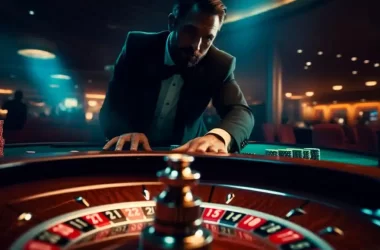If you want to improve your chances at roulette, you need to know how it works. There are a number of strategies you could use; find one that’s appropriate for your risk profile and budget.
The most commonly used, if totally unrealistic, roulette strategy is Martingale: doubling your bet after each loss you suffer until you win and recover everything, by which time you’ve blown your entire bankroll.
The Gambler’s Fallacy
Take the Gambler’s Fallacy: a cognitive tendency to make false inferences about the likelihood of future events based on an interpretative sense that random events have got unbalanced through time – like getting 10 heads on 10 tails, twenty in a row on a coin toss – and, therefore, it should now pay to bet tails next time out, and bet a little more, and maybe a little more, and a little more, a real anchoring fallacy that leads you to bet more money on red than is necessary.
These tricks can be avoided only if you understand that random events are independent of each other, and by knowing that the Law of Large Numbers (it says that the sample values will converge towards their expected value as more and more trials are made) will enable you to make more reasonable decisions whenever gambling, investing or making any decision where your Decision Calculus consists, in part, of probabilistic factors. And being able to do that will prevent you from giving in to superstition and hunches, and so will help you to avoid the Gambler’s Fallacy.
The Hot and Cold Numbers Myth
Some players concentrate their betting on the numbers that are hot (as in, have been hit frequently), and some concentrate on those that are cold (as in, haven’t hit). The casinos display the hot numbers for them, and many players think they have a better chance to win by betting on hot ones, which is the gambler’s fallacy: that if something has happened more than once, it’s more likely to happen again.
But the theory neglects to take into account that roulette is a game of chance, and that each number had an identical non-returnable chance of coming up on the spin. Besides, the wheel didn’t know (and had no way of knowing) if that number has paid out before, and that it could suddenly become hot again: it’s purely a coincidence, though one unlikely to pay out more than once or twice in succession.
The Martingale System
A simple algorithm called the Martingale System gives players an added advantage by using mathematical probability to maximise the probability of winning at Roulette. It’s user-friendly and simple (a beginner would find it useful), and yet has limitations that can significantly affect your experience and performance while playing.
You have to have enough money available to bet twice the amount of your next bet, a prospect that will rapidly deplete your bankroll and result in losses that exceed your eventual possible wins. Many casinos also have table limits that if hit after a certain number of losses will stop you increasing the size of your bet; without enough money to hand, you will run out of chips and eventually lose everything – and this for a strategy that is mathematically unsound and therefore completely irresponsible! So I’m not taking that chance!
The d’Alembert System
The d’Alembert System is another betting strategy seen on games such as roulette or other bets with a binary outcome, specific to two outcomes only, such as bets with heads or tails outcome (ie, upon the landing of an even number on the roulette wheel). It is usually based on the presumption that in a series of successive tosses of a coin, the odds that a heads result continues on the next toss depend on its past outcomes (ie, the more heads tosses that took place in succession, the more likely it is that the next toss will result in tails). However – as was already discredited by several studies – this is not indeed the case.
In the d’Alembert System, you decide how many dollars you want to bet a spin – perhaps $6, $10 or some larger number up to the table minimum of $10 or maybe even more. Every time you win, you lower your bet size by one unit and every time you lose, you raise it by one unit.
This system lets players slowly cut their losses and cash in the probability of a winning streak for maximum profit. But note that the d’Alembert System doesn’t completely eliminate house edge, and players might sometimes need to place big bets.







